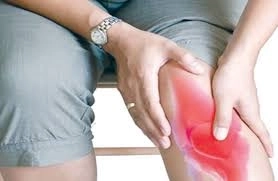
How Does Radiofrequency Treat Knee Osteoarthritis by Dr. Mohamed
Published on: 2025-07-01 | Written by: Professor Dr. Mohamed Hamdy El-Laqani, Professor, Consultant and Treatment of Chronic Pain
Knee osteoarthritis is one of the most common conditions affecting seniors and athletes, significantly impacting mobility and quality of life. With medical advancements, it's now possible to manage pain without surgery, thanks to radiofrequency treatment, a technique provided by Prof. Dr. Mohamed Hamdy El-Leqany, who brings extensive academic and clinical expertise in chronic pain management.
In this article, we explore how radiofrequency works in relieving knee osteoarthritis pain, and when it is considered a recommended treatment.
What Is Radiofrequency Treatment?
Radiofrequency (RF) is a non-surgical procedure that uses controlled electrical waves to disrupt pain-transmitting nerves.
Prof. Dr. Mohamed Hamdy El-Leqany explains that this method temporarily blocks the sensory nerves around the knee joint without affecting motor function.
How Is It Used to Treat Knee Osteoarthritis?
In moderate to advanced stages of knee osteoarthritis, RF is used to relieve pain caused by:
-
Cartilage degeneration
-
Chronic joint inflammation
-
Muscle spasm associated with movement
-
Failure of medications or conservative therapies
Prof. Dr. Mohamed Hamdy El-Leqany emphasizes that while RF doesn’t reverse joint damage, it significantly reduces pain, enabling patients to move freely without surgery.
How the Procedure Is Done – Under Prof. Dr. Mohamed Hamdy El-Leqany’s Supervision
-
The session is performed under local anesthesia
-
Image-guided techniques are used to place the needle precisely near the sensory nerves
-
Radiofrequency waves are applied for 1–2 minutes
-
The patient is discharged shortly after, with no need for hospitalization
Pain relief typically begins within a week and can last from 6 months to a year.
Benefits of RF Treatment for Knee Osteoarthritis
According to Prof. Dr. Mohamed Hamdy El-Leqany, key advantages include:
-
Non-surgical and minimally invasive
-
Preserves knee joint function
-
Ideal for patients unfit for surgery
-
Reduces the need for painkillers
-
Can be repeated safely when necessary
Conclusion
Radiofrequency offers a safe and effective alternative for relieving knee osteoarthritis pain without surgery. Prof. Dr. Mohamed Hamdy El-Leqany stresses that proper case assessment is essential to ensure successful outcomes and determine the expected level of relief.

